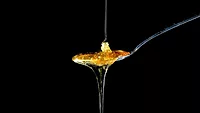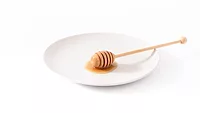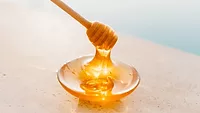Investigation Finds Nearly Half of Honey Imported to EU is Adulterated

Credit: Mae Mu via Unsplash
Approximately 46 percent of honey imported to the EU is adulterated, according to the European Food Safety Authority (EFSA). These findings are the result of an EU-coordinated action, titled, “From the Hives.”
From the Hives involved three stages that were executed from October 2021–May 2022:
- Imported honey samples were collected at EU borders and were analyzed by the Commission Joint Research Center (JRC) in Geel, Belgium
- EU Member States and the food fraud team from the European Commission’s Directorate-General for Health and Food Safety (DG SANTE) recollected honey samples at each point of destination, as well as information on suspected operators based on past imports registered within the Trade Control and Expert System (TRACES), non-compliances, and food fraud suspicions registered within the Alert and Cooperation Network
- Authorities from Member States and European Free Trade Association (EFTA) states carried out food fraud investigations with support from the European Anti-Fraud Office (OLAF) at the places of import into the EU, processing, blending, and packing.
The coordinated action confirmed the initial assumption that a significant part of honey imported into the EU is not compliant with the provisions of European Council Directive 2001/110/EC (the “Honey Directive”). Specifically, 46 percent of the 320 imported honey samples included in the From the Hives initiative were found to be non-compliant with Honey Directive requirements. The Honey Directive sets forth the essential requirements to be met by honey products in order to allow such products to move freely within the EU market.
The present From the Hive findings showed a much higher rate of non-compliance among honey imports when compared to the findings obtained in 2015–2017, which revealed a 14 percent non-compliance rate. In 2020–2022, the highest absolute number of suspicious consignments originated from China (74 percent), although honey originating from Turkey had the highest relative proportion of suspicious samples (93 percent). Honey imported from the UK had an even higher suspicion rate (100 percent), which is likely due to the fact that honey is produced in other countries before being further blended in the UK and then re-exported to the EU.
More than half (57 percent) of the operators had exported honey that was suspicious of being adulterated with extraneous sugars, and more than 60 percent (66 total) of the operators imported at least one suspicious consignment. To date, 44 EU operators have been investigated and seven have been sanctioned. Forensic investigations undertaken by Member States and OLAF based on onsite inspection, sampling, and close examination of digital records demonstrated complicity between exporters and importers and the following malpractices:
- Use of sugar syrups to adulterate honey and lower its price, both in non-EU countries and the EU
- Analysis in accredited laboratories to adapt honey/sugar blends to elude possible detection by clients and official authorities before import operations
- Use of additives and colorings to adulterate the true botanical source of the honey
- Masking of the true geographical origin of honey by forging traceability information and removing pollens.
The European Commission suspects that it is highly likely that a large portion of suspicious honey imported from non-EU remains present and undetected on the EU market. The Commission will discuss an appropriate follow-up to this coordinated action with the relevant stakeholders and Member States authorities. The following course of action is being considered:
- Requiring food business operators, including importers, in the honey sector to ensure that food placed on the EU market satisfies the requirements of EU and national food law; verify that such requirements are met; and correctly identify the nature, composition, place or country of origin of the honey
- Inviting Member States to increase their official controls on the market and at EU borders, and to improve investigation techniques such as analytical methods for determining authenticity
- Reinforcing import requirements, such as the authenticity responsibility for exporting countries, and working with the competent authorities of exporting countries to address the issue of fraudulent products.
The From the Hive findings follow recent reports from the U.S. Food and Drug Administration (FDA) and the Canadian Food Inspection Agency (CFIA) that also demonstrate the widespread and significant issue of imported honey adulteration within their respective countries.
Looking for quick answers on food safety topics?
Try Ask FSM, our new smart AI search tool.
Ask FSM →








